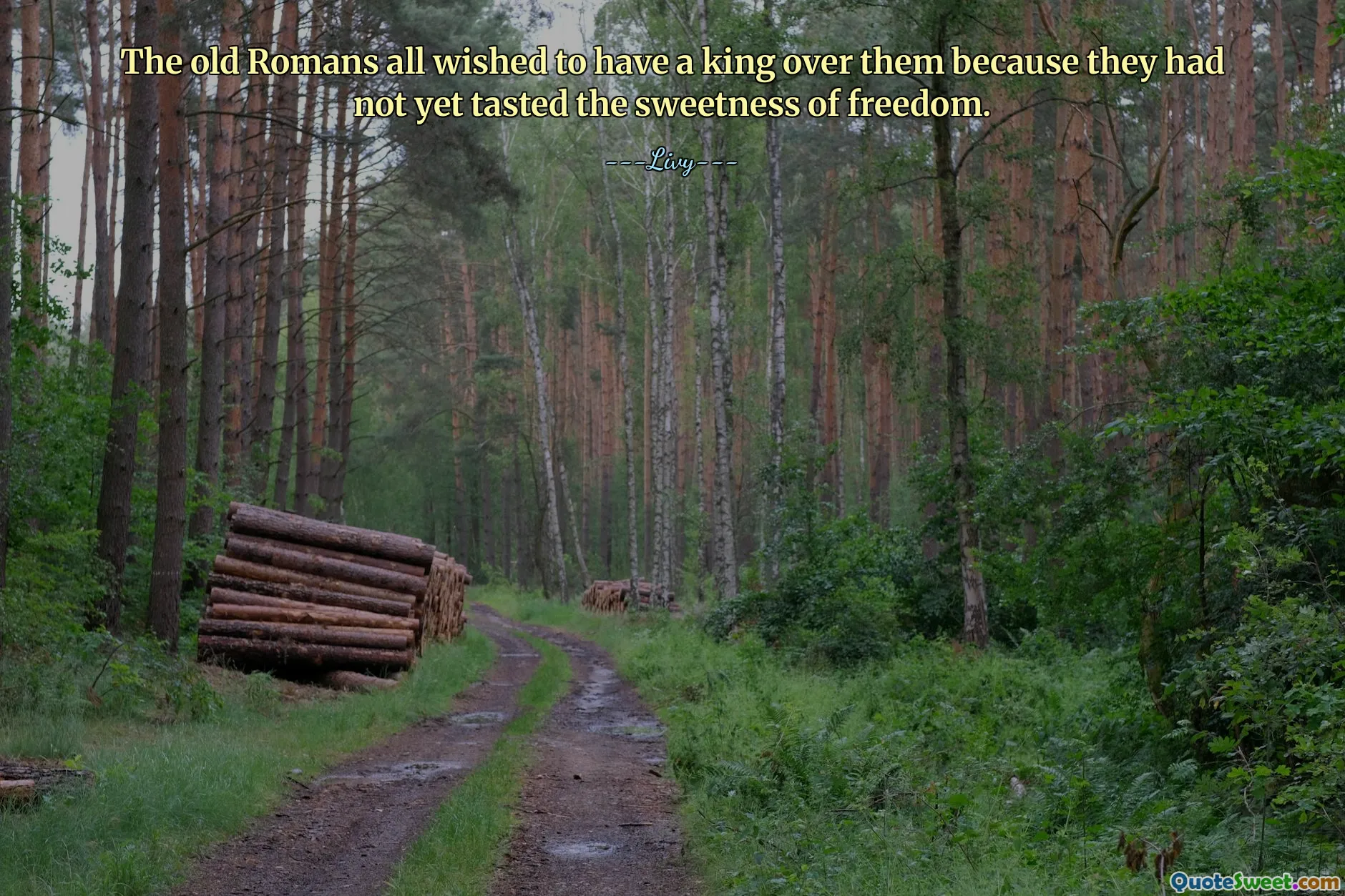
The old Romans all wished to have a king over them because they had not yet tasted the sweetness of freedom.
This quote highlights a fascinating paradox about human nature and the perceived allure of authority. It suggests that the Romans, in their early history, longed for a monarch because they were unfamiliar with the true value of liberty. When people lack experience with freedom or the responsibilities and risks that come with it, they may idealize the idea of having a single ruler to provide order and stability. This longing can be motivated by several factors, such as fear of chaos, desire for security, or a lack of understanding about self-governance.
From a historical perspective, this sentiment underscores a recurring theme in political philosophy: the desire for authoritative guidance when faced with uncertainty or societal upheaval. While leadership provides clarity and direction, it also has the potential to threaten individual freedoms if not checked. The quote prompts us to consider how the appreciation of freedom develops over time and through experience. It warns us that previous generations might have misunderstood or underestimated the importance of liberty, subscribing instead to a desire for control and certainty.
Moreover, it invites reflection on modern society, where many grapple with choices between security and freedom. Sometimes, people may prefer the comfort of authoritarian structures because they seem simpler or more predictable. However, true freedom involves responsibility, risk, and the courage to govern oneself. This historical insight reminds us of the importance of valuing and nurturing freedom, recognizing that its true sweetness is often realized only after experiencing its absence.
In essence, the quote emphasizes that liberty is not always immediately appreciated in its full complexity and that understanding its significance is a process. It encourages us to cherish the rights and freedoms we have gained and to be vigilant in safeguarding them for future generations.











